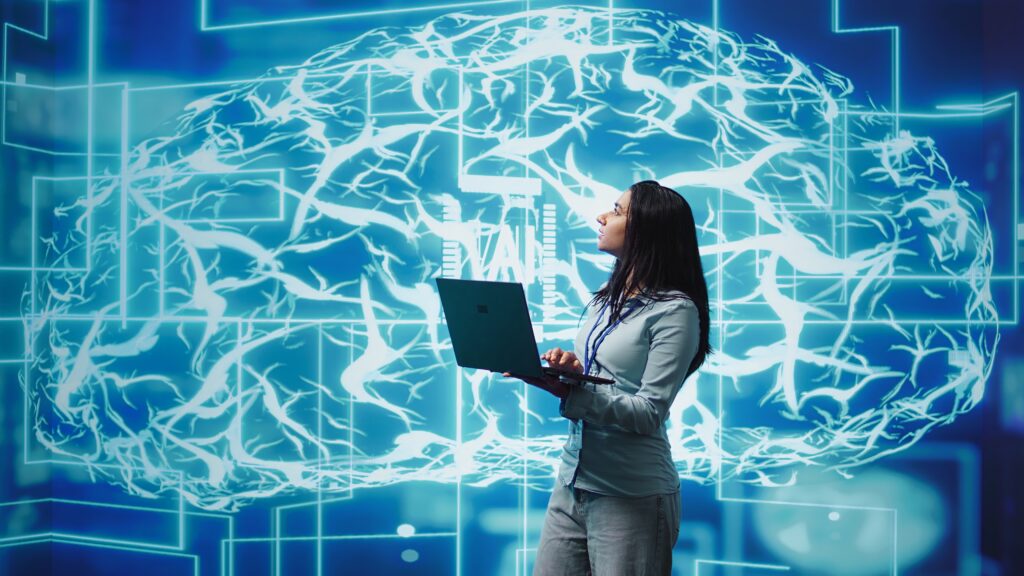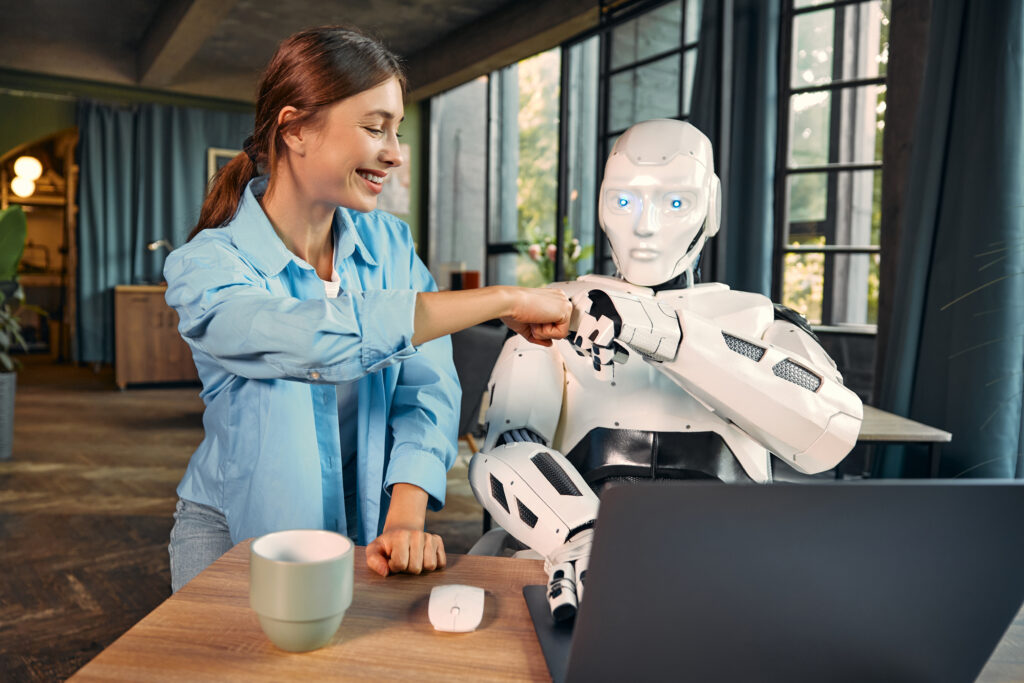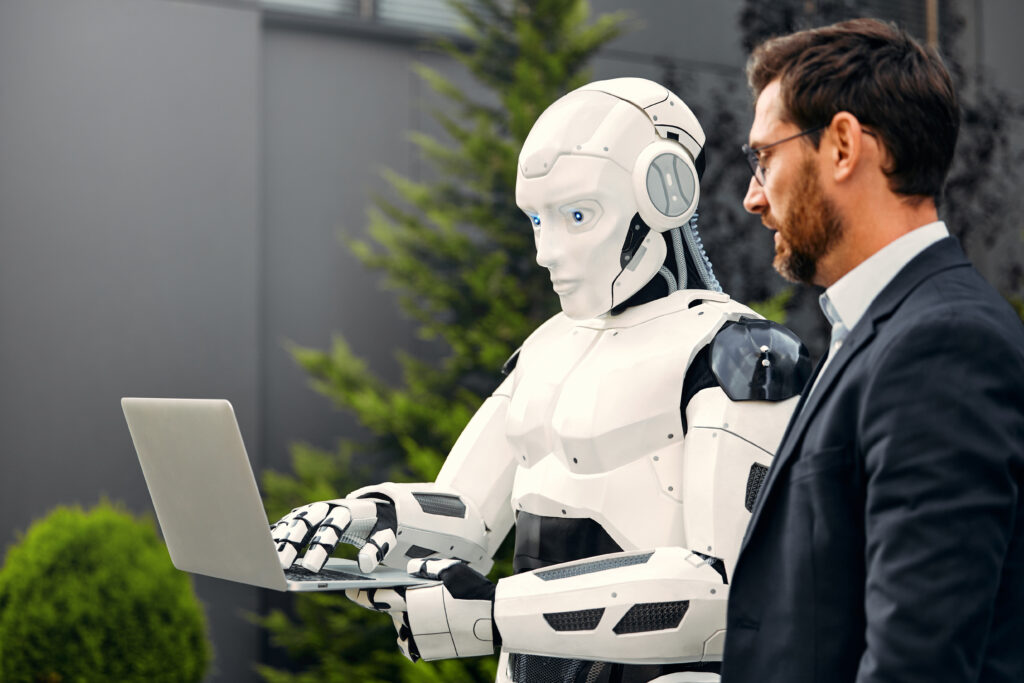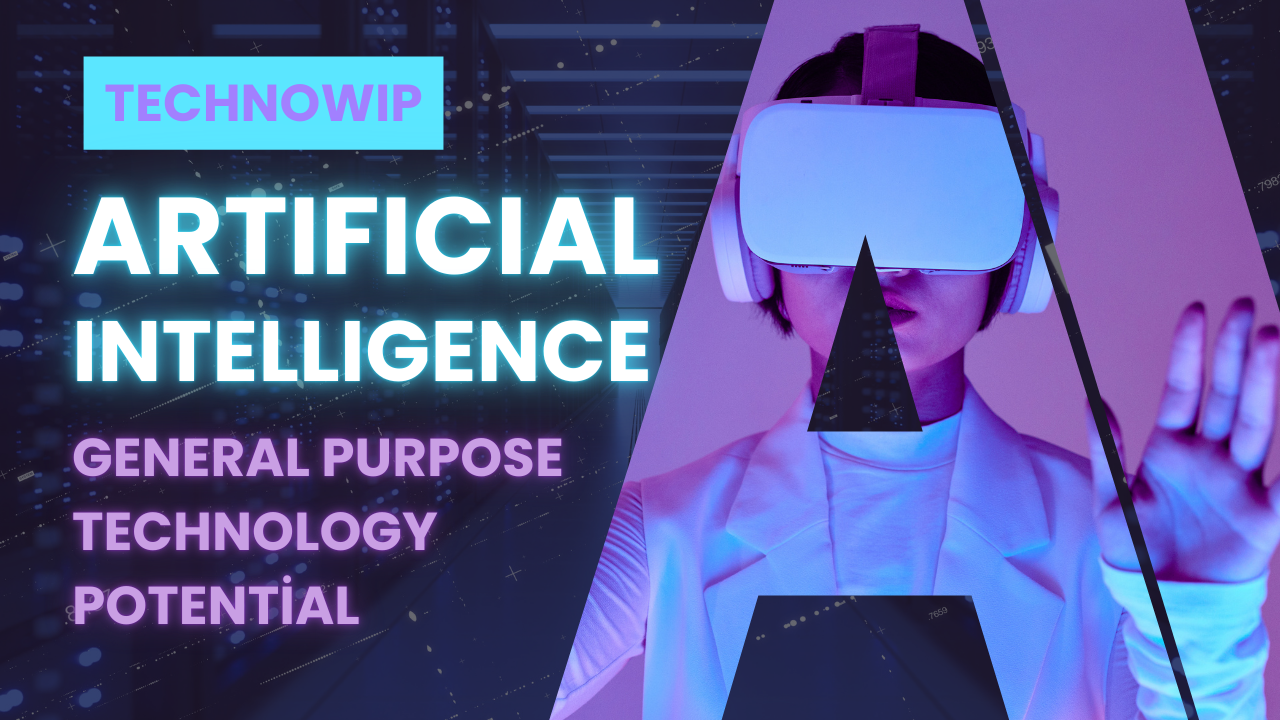Introduction
Artificial Intelligence (AI) has quickly progressed beyond experimental phases to become an important player across many sectors – ranging from healthcare and finance, manufacturing and education. AI’s impact is not simply superficial – its transformational impact goes deeper, altering core processes, challenging norms and opening new opportunities previously considered unobtainable. This blog post investigates Artificial Intelligence General Purpose Technology by exploring its implications across various domains with real world case studies and data to support that analysis.
Our aim is to offer an honest assessment of AI’s transformative abilities, opportunities and current limitations while keeping its message engaging and approachable for audiences of any background or interest level.

Problem:
Understanding the Full Scope of AI as a General-Purpose Technology
Businesses and individuals have historically treated AI like an expensive fad or supplement rather than as the groundbreaking foundational technology it has become. Many organizations remain uncertain of AI’s effects, implementation strategies and benefits both short- and long-term applications.
AI’s influence extends across industries and is not easily managed or leveraged; therefore its adoption and utility remain hard to assess and assess due to various myths surrounding AI capabilities, often related to fears over job automation or control loss.
The Misconceptions Surrounding AI
AI can often be misunderstood, leading to limited understanding of its abilities and potential.
- Example of Job Automation Anxiety: Many fear that artificial intelligence (AI) will result in mass job displacement without taking into account its potential to create entirely new industries that demand jobs.
- Complexity Barrier: Many businesses assume AI will be too difficult or expensive for their organization to use effectively; unfortunately they’re unaware of scalable, affordable AI solutions tailored specifically for certain industries.
Demystifying Artificial Intelligence’s true potential and general-purpose nature is of utmost importance, especially as more industries realize its transformative potential. We will explore its widespread applications backed by data and real case studies in order to showcase AI’s transformative potential within today’s industries.
Agitation:
The Need for General-Purpose AI Implementation
AI’s transformation power has quickly become essential to companies seeking to remain competitive. AI is becoming an essential technology due to its versatile nature; in sectors like healthcare it can assist with diagnosing disease quickly and processing vast datasets in record time while personalizing care plans for individual patients.
AI can enable real-time fraud detection and algorithm-driven financial forecasting in finance; but here lies its main flaw: limited awareness about AI’s general-purpose potential can often result in missed opportunities for innovation.
AI’s role in society is still evolving, creating uncertainty as to its place within current frameworks. But organizations that don’t take advantage of this emerging technology run the risk of falling behind and missing out on substantial productivity, efficiency and innovation benefits that this field offers.

Case Study: AI in Healthcare
Healthcare industries provide one of the best examples of AI’s global positive potential (GPT). AI-powered diagnostic tools have achieved remarkable accuracy in diagnosing conditions – for instance IBM Watson was used as part of cancer detection techniques showing greater accuracy than traditional approaches in certain instances.
Studies demonstrate AI models achieving 95% accuracy when diagnosing diseases like breast cancer or early signs of diabetic retinopathy often exceeding human specialists in diagnostic success rates. Such capabilities indicate the transformative power of AI healthcare technology can enhance diagnosis speed, patient care and resource allocation at scale worldwide.
Solution:
AI as a General-Purpose Technology with Boundless Potential
AI’s capabilities span across a wide variety of domains due to its adaptability and learning capacity , qualities which make it ideal as a GPT candidate. Here is an exploration of how it has made major advances across industries while looking forward to what awaits this emerging tech in future generations.
1. AI in Finance: Revolutionizing Decision-Making
Financial services use AI to predict market trends, detect fraud and streamline customer service. Algorithmic trading models in algorithmic trading use artificial intelligence models that analyze large volumes of financial data within milliseconds ,far faster than human analysts ever could identify trading opportunities.
JPMorgan Chase’s COIN program reviews commercial loan agreements in seconds which would previously take over 360,000 hours annually! AI integration also brings personalized insights directly into customer accounts for improved client experiences and further enhance efficiency within financial sectors.
AI’s rapid processing speed of financial data is nothing short of transformative for my view, helping reduce human errors when making decisions and giving businesses faster access to relevant insights for making informed decisions more quickly. I find the possibilities presented by an increasingly smart AI exciting.
2. AI in Manufacturing: Enhancing Precision and Efficiency
Manufacturing AI provides efficiency gains across quality control, predictive maintenance and supply chain management. Factory robots equipped with artificial intelligence-powered sensors are used in quality checks on products with accuracy that no human could match.
Siemens uses AI for predictive maintenance purposes which has resulted in up to 30% decreased equipment failure rates, minimized downtime costs and reduced operational expenses- evidence that AI’s potential can completely transform manufacturing standards.
Artificial intelligence in manufacturing is one of the clearest examples of how technology is improving human capability. Witnessing AI working alongside humans to produce safer and more efficient production processes gives me hope for humanity’s future.

3. AI in Retail: Transforming Customer Experience
Retail is currently experiencing rapid digital disruption thanks to AI’s customer-oriented capabilities. AI tools offer personalized shopping experiences by analyzing past purchasing behavior and suggesting products – Amazon’s recommendation engine is estimated as accounting for 35% of revenue! Furthermore, customer service chat bots powered by AI reduce response times while simultaneously decreasing service costs so retailers can focus more strategically.
AI makes shopping experiences feel intuitively tailored, acting almost like having my own shopping assistant and saving me time while making retail therapy even more pleasurable and convenient.
4. AI in Education: Personalizing Learning Experiences
AI holds enormous promise in education, providing tailored learning experiences for students. DreamBox uses AI algorithms to customize lesson plans based on each student’s performance and adapt lesson plans accordingly.
Research shows this personalized form of AI-assisted learning has the power to increase engagement and test scores by up to 30%! Furthermore, its scalability enables it to address educational gaps by providing resources to underserved communities thereby helping level the educational playing field for everyone involved.
For me, personalized learning is revolutionary. Imagine a world in which all children had access to an individually tailored curriculum which takes into account each of their specific strengths and weaknesses – it seems like such an innovative step forward that it may change how we think of education altogether.

5. AI in Agriculture: Optimizing Food Production
Agriculture has taken advantage of AI data insights to enhance crop yields and resource management, using sensors powered by artificial intelligence such as those made available by John Deere to analyze soil quality and assess crop health, while predictive models help farmers select optimal planting times, decreasing water and fertilizer consumption by up to 15% annually while simultaneously increasing yield by 15% each year. As food scarcity continues its impact on agriculture could become one of AI’s key contributions towards global welfare.
AI has given me hope of improving food production. With more sustainable farming practices due to AI’s rise, this could provide solutions for food shortages as well as preserve natural resources.
6. AI in Transportation: Pioneering Autonomous and Efficient Travel
Transportation industry innovations are underway at an incredible rate, particularly through autonomous driving vehicles and logistics optimization. AI-powered navigation systems help increase efficiency when planning routes.
Uber employs AI algorithms for surge pricing and driver allocation to provide timely services in high demand areas; while autonomous driving tech such as Waymo promises safer self-driving cars which could eventually reduce accidents rates while improving traffic flows.
Witnessing the increase of autonomous transportation technology has been phenomenal to experience first-hand. I find its promise for reduced accidents and efficient travel particularly compelling in urban settings with heavy congestion issues; such a revolution may well redefine personal and public transportation services alike.
Future Implications: AI as the Backbone of a Digital Society
Gartner forecasts that AI as a General Purpose Technology will increasingly become embedded into daily life and industry over time, contributing $15.7 trillion to global GDP by 2030 according to their projections. AI growth doesn’t fall within any specific field or discipline .Instead it impacts nearly every field by creating jobs, improving service quality and driving innovation forward. As AI-powered tools become more user friendly they’ll continue to revolutionize global workflows while driving efficiency gains that could revolutionize workflow processes altogether.
However, AI requires ethical adoption as its development may raise ethical concerns around privacy, data ownership and employment practices. Policymakers and industry leaders must prioritize responsible AI adoption practices so as to take full advantage of its potential while mitigating potential pitfalls.

Conclusion
Artificial Intelligence has quickly established itself as a transformative technology across various industries and areas of life, from revolutionizing healthcare diagnostics to optimizing agricultural production, AI has proven essential. But to realize its full potential successfully it requires clear understanding, strategic deployment and ethical considerations when being deployed successfully.
AI as a GPT represents not just another passing trend but rather an immense technological transformation. With its capacity for adaptation, learning, and improvement opening up endless opportunities and providing us a realistic yet exciting glimpse of a future led by intelligent machines with enhanced human capacities.
FAQS
What does AI refer to as an all-purpose technology?
AI as a General-Purpose Technology (GPT) signifies it as a foundational technology with many uses across industries – similar to electricity or the internet, AI can transform processes while opening new opportunities.
How is AI currently used in healthcare?
AI technology in healthcare aids diagnostics, disease detection, personalized patient care plans and predictive modeling. AI systems like IBM Watson have become invaluable aids in diagnosing cancer and other illnesses with high accuracy rates.
Can artificial intelligence (AI) truly transform job markets?
AI can automate tasks that may impact certain jobs, yet also open up opportunities by creating roles, improving efficiency, and opening up whole new fields that need human expertise in tandem with AI.
Why does AI matter in financial sectors?
AI can play a vital role in finance for fraud detection, risk management and algorithmic trading. AI helps financial institutions make faster, data-driven decisions with reduced errors while simultaneously improving customer experiences.
What examples exist of AI being applied in everyday retail settings?
AI in retail can be seen through personalized recommendations, customer support chatbots powered by artificial intelligence (AI), demand forecasting tools like Amazon’s recommendation engine that drives significant portion of their sales.
How is Artificial Intelligence used to advance education?
AI can personalize education for each student by adapting lessons according to his/her individual learning style and performance, such as DreamBox which tailors content so as to maximize each pupil’s engagement and understanding.
How is artificial intelligence helping agriculture?
AI can assist farmers by assessing soil and crop health, optimizing planting schedules, and decreasing resource use. John Deere uses AI to increase crop yields while managing resources sustainably.
Are Artificial Intelligence applications employed in transportation?
AI plays an essential part in optimizing transportation services, from route planning and developing autonomous vehicles, to pioneering self-driving technology like Waymo’s self-driving cars for improved safety and efficiency.
What will the potential future impact of AI be in society?
AI’s promise includes increased productivity, better quality of life and innovations across industries. However, its development requires ethical policies to safeguard privacy, manage data responsibly and ensure fair employment impacts.
What steps can businesses take to overcome barriers associated with adopting artificial intelligence (AI)?
Businesses can start small with AI solutions by starting small, seeking expert guidance and providing employees with training on its applications. Understanding its practical use helps businesses overcome initial complexity and cost concerns associated with this emerging field of science.

